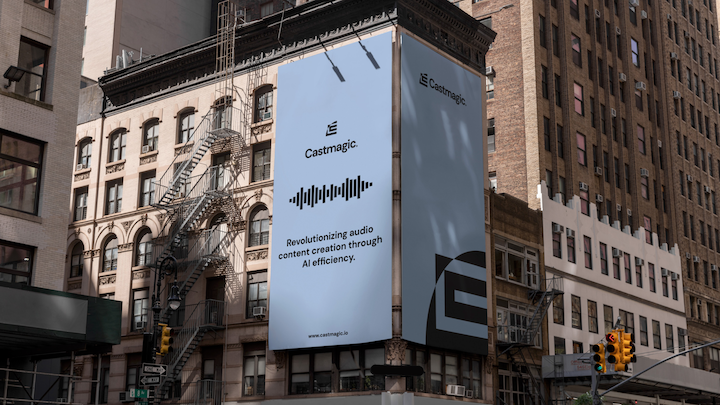10 Ways You Can Learn To Sing Better
I’m confident you can learn to sing. Furthermore, if you do decide to learn to sing it will not only improve your voice, but also your approach to a lot of areas in life.
Many of us shy away from singing in public. Perhaps many of us are scarred early on when we were singled out by a teacher, friend or sibling for singing out of key. Maybe you heard a recording of yourself and deemed it terrible.
No matter the reason, you need to lean into your fear and overcome these self doubts.
To learn to sing is hard. It takes discipline and it’s tough to put yourself out there only to be laughed at or told your dream is “impossible” or “it’s too late.” Too late for what? Self improvement. Never.
Even if you have been told you are tone-deaf, the person who told you is likely mistaken. Being truly tone-deaf, or unable to distinguish between pitches, is very, very rare.
In the same way you were sent to school to learn important skills like reading and mathematics, it is possible to go to school to learn to sing. In school it didn’t matter if you were a natural at reading or a natural at math, you still came out of school stronger in both areas then when you went in. Improvement is possible!
Singing is the same way. A naturally talented singer still needs training to build their skill in singing and someone without natural talent can still will their way forward. In fact, people who have less natural talent, may ultimately pass those born with the natural talent because they will consciously make strides to improve their voice and be able to truly understand what is going on with their anatomy.
In this article, we’ll tell you the 10 basic ideas you’ll need to keep in mind in order to learn to sing.
Can You Learn To Sing?
According to scientific data, there is technically no defining difference between your physical vocal makeup and the vocal anatomy of singing greats like Whitney Houston.
So what separates Rihanna from you and I? Practice, perseverance and confidence. All things that can be learned and obtained.
Practice is something professional singers do every single day. Professional singers make tons of money just by opening their mouths so they need to make sure that they are opening it correctly. And they need to reinforce those habits on a regular basis.
The truth is, whether you want to build your arm muscles or your laryngeal muscles, you need to consistently work them out. And you can’t just bulk up in one day. You have to do a little each day, with rest periods in between, if you want to create a reliable singing voice you can depend upon.
If you’re completely new to singing, you may start to see micro-gains from day one. You may instantly fix something that you were doing completely wrong. No matter your pace, it is fun to learn about your vocal anatomy and how it all works. Your voice is the most complex musical instrument out there.
When learning to sing, you’ll learn to take tiny muscles and produce big sounds. Beyond that, your neural connections will love it. From mindful deep breathing to the science behind sound, learning to sing is a fascinating and rejuvenating study.
Here are 10 ways to improve your singing skills that do not depend on natural talent. They depend on YOU doing what you need to do in order to learn to sing.
1. Breathe Correctly
You may be thinking, “What? Learn how to breathe? I already know how to breathe!”
But do you know how to breathe in a way that helps you do exactly what you want with your own voice? In order to breath correctly for singing and well, life, you need to learn to breathe from your diaphragm. We’ll get into that, but first…
For “A Star Is Born,” Bradley Cooper had to learn his role from the ground up. He had to learn how to lower his natural speaking voice AND then he had to learn how to sing. In an interview, he tells NPR that the process was grueling, especially when it came to learning how to breathe.
He says learning to breathe properly is absolutely critical to overcome stage fright and to sing in front of others.
That is because diaphragmatic breathing, or ‘deep belly breaths’, will help you with your singing and more.
From a health and confidence perspective, diaphragmatic breathing, will slow your heart rate and enable you to receive more oxygen with less effort. By conciously tapping into your breath, you will gain mastery over your nerves and quiet your thoughts so that you can sing and speak your best in front of others.
From a singing perspective, when you learn what the diaphragm actually is, how it works and how you can make it work for you, you will be able to better control the flow of oxygen to sing each line of a song with the right power and support.
You can learn how to breathe correctly from your diaphragm very quickly by following the below exercise. However, it is the daily practice of the exercise that will make diaphragmatic breathing second nature.
Here is an exercise to learn and practice diaphragmatic breathing:
- Find a flat surface and lay down on your back
- Place a hand over your chest and a hand on your stomach.
- As you breathe in, fill your stomach up like a balloon while keeping your chest still. The hand on your chest should remain still while the hand on your stomach should rise.
- Breathing out, allow the air to naturally push out from the pressure, however, control its release. Nice and slow with a hissing sound.
- Repeat this for 10 minutes every day. As you get the technique down you can practice this exercise while standing up.
2. Get In The Right Mind Set
“Whether you think you can, or you think you can’t–you’re right.”
Henry Ford
Did you know humans are more afraid of speaking (and singing) in public than they are of dying? Deciding you can sing and showcasing yourself creatively is no small challenge. It takes bravery and a belief in yourself.
If you truly want to sing, the first step is to go all in mentally. Decide that you are able to do this. Decide that you can become a great singer.
Don’t be cocky, but become inwardly confident. If you are just going to stand in your own way and secretly think it is impossible, there is no sense in wasting your time. You can do this. Practice telling yourself you can do this.
Tip: For the 10 minutes you practice diaphragmatic breathing every day, think positive affirmations about yourself. Sure… it’s a little cheesy, but positive thought and self-love can only help.
This confidence will help you once you hit the stage and spread out into other areas of your life.
3. Learn To Truly Listen To Your Voice and Body
A great deal of the process of learning to sing is simply about learning to listen. In this case, you are listening not just to your voice itself, but also to your mind and to the sensations in your body.
Learning to listen, to observe, to become aware – this is called “mindfulness.” Mindfulness as a practice is a well-documented path to getting better at pretty much anything, because it teaches you how to tune in from a place of conscious awareness and acceptance. Again, if you learn to become mindful while singing – you will learn to become mindful in more areas of life. Singing is a meditation.
While practicing the deep belly breaths above on the daily, tune in. For 5 to 10 minutes, don’t think about anything but your breathing. This is literally a mediation. One that will not only help you master diaphragmatic breather faster, but one that will deepen your mindfulness practice and allow you to hone in when under pressure on stage.
For practical purposes, mindfulness as a singer is a lot like turning on your GPS maps app and following directions. When singing, what you are listening for is the inner direction from your own body and mind.
Ask yourself Where you need to take in more breath and learn how to use it incrementally to sustain a long phrase. How can you use your diaphragm to punctuate notes and phrases for emphasis? Where is your larynx sitting, or the sound resonating in your body.
While mindful singing is important no matter the situation, mindfulness is especially important when singing with others and with live musicians. You don’t want to be that one person in the jam session who is simply not fitting in with the vibe. Even if someone does have incredible skill, if they don’t tune in – they’ll ruin the song for everyone.
Mindfulness is what permits you to develop that working synergy, and not become that non-stop solo artist (a musical ball hog). By remaining mindful of others, you can trade off ideas and fit your ideas within the groove of the group and lead the way more harmoniously.
Mindfulness for Vocal Health
As you continue to improve, you will learn to connect certain physical feelings with certain notes or sounds. You will also learn to better notice pain or strain and that is VERY IMPORTANT for the health of your instrument – your vocal cords.
The more you train your mind and body to stay mindful, alert, aware, and engaged with each note and phrase, the less likely you will be to sustain an injury and the better singer you will become.
4. Find Your Vocal Range
Depending on your voice, your vocal sweet spot is within a certain range. From low to high, traditional singing ranges are: bass, baritone, tenor, alto, mezzo soprano and soprano.
Where does your voice fall within this spectrum? You can figure this out for yourself right now.
If you don’t have an instrument, you can use the below two-minute video as your guide. Follow its instructions to identify your vocal range.
If you have an instrument handy, grab it. Then start singing, going lower and lower note by note. When you have reached the lowest note you can squeeze out, find that note on your instrument. Write it down.
Then do the exact opposite. Sing note by note until you have sung as high as you possibly can. Find that note on your instrument. Write it down.
The notes between the lowest and highest notes that you just identified is your potential vocal range. Keep in mind that you likely still want to stay away from singing the notes way at the bottom or all the way at the top of your range. You probably sound best when you stay in the middle of your range.
However, by practicing vocal exercises daily, you will increase your range. You will get stronger and more able to reach down to those lower notes and up to your higher notes. We even have a full article on how to make your voice deeper complete with vocal exercises.
With practice, your range will expand until one day you realize you can sing every note in your potential range and make it sound just the way you want it to sound.
5. Learn To Sing Online / Learn To Sing At Home
Before you fight through traffic and drop the big bucks on a local voice instructor, I encourage you to try out an online course first.
There are a few reasons for this. First, the basics are taught and reviewed in a predictable manner. A concept is explained, and then you run through a variety of vocals exercises or scales to reinforce that concept.
Personally, I find it more important to get those concepts explained by the best in the business. And unless you live in a major city and are willing to drop 100s or even 1000s of dollars an hour on in-person lessons, you are likely to find a teacher with a better pedigree online.
For instance, my favorite online singing course is taught by Roger Love, the same guy who taught Bradley Cooper for a star is born, Jeff Bridges for crazy heart, Tony Robbins and Tara Banks for all of their presentations, and the list goes on. The fact that you can take a singing or speaking course from him for under $200 within the comfort of your own home is incredible.
Use this link to get 20% off of Roger Love’s Singing Course: https://bit.ly/RLoveSinging
Masterclass
If Roger Love isn’t your cup of tea, how about you learn to sing from Christina Aguilera via MasterClass.
The amount of well-qualified teachers that online learning gives us access to is unprecedented and something we should all be taking advantage of.
Furthermore, in terms of budget, the majority of the typical singing lesson consists of a brief introduction to a new vocal exercise, followed by many rounds of practicing that same exercise. With online vocal training, you are only paying for the teacher’s time to introduce and explain the vocal exercise. Then you can get down to the business of practicing the exercise on your own for free!
And if you need to return to the intro explanation, a few clicks and you are there with a free refresher you can listen to again and again. In this way, you can literally take an entire online learning to sing course for the price of what you would pay an expert private teacher for an hour session. Plus you get to review your lessons again and again whenever you need a refresher.
If you are time-crunched between work, family and other obligations, learning to sing online cuts out the commute and maximizes your budget and time all while learning from the best of the best.
Perhaps the best part about learning to sing online or from home is that you can get started right away. No more talking about learning how to sing, or wishing you could. Instead, you can take action and start right now – when you are confident and have it on the forefront of your mind.
Further reading: Full Masterclass Review
6. Sing Your Favorite Songs
With your favorite songs the music moves you and presto – your mouth is open and you are singing away.
This is gold when it comes to learning how to sing better. It is also one of the most fun parts of learning how to sing.
There is a saying “the way it begins is the way it ends.” So why not begin your singing practice the way you hope to end it – by singing your favorite songs? Even better, you can learn by imitating the singers you love most while practicing mindfulness (see #3 here) as you sing along.
Go line by line, listening to the singer’s phrasing and breathing, then imitating it note for note and breath for breath. This will teach you so much about how professional singers navigate a phrase, adjusting breath, volume, tone and more to bring a song you love to life.
The better you get at this type of singing practice, the more fun you will have singing along with your favorite songs and the more confident you will feel in the process.
7. Record Yourself Singing
Listening to your own voice, speaking or singing, can be a strange experience. This is because we rarely have an accurate auditory sense of what we really sound like. This happens because we are hearing the internal sound vibrations that rattle our bones combined with the outside. Everyone else only hears the vibrations that come from our mouth and travel through the outside world.
Listening to your voice played back, you lack the reinforcement of the internal sound vibrations and so your voice sounds higher pitched. The combined, lower pitch sound is what you have heard while speaking your entire life, so often times people have a negative first reactions to the sound of their recorded speaking or singing voice.
But don’t let this throw you or scare you off. Rather, just treat it as more new information you can work with as you are learning to sing. After all, how will you ever develop a singing voice you want to share with others if you don’t have any idea what you really sound like?
Remember Bradley Cooper learning how to breathe and sing to play his role in “A Star Is Born?” He wanted to sound a certain way, so he had to practice and listen to examples of the way he wanted to sound and then listen to examples of how he sounded until they matched.
You need to do the same if you have a goal to sound a certain way. If you enjoy listening to your voice, you can bet others will enjoy it too.
8. Train Your Ear – Learn To Sing With These Apps
One very important skill all singers must master is ear training. Just like you are training your diaphragm and vocal cords to work in certain ways that support the breath control you need to sing, so too do you need to train your ear to accurately detect the movement of a melody.
Often, people who are mistakenly labeled “tone-deaf” simply lack the ear training to be able to correctly follow a melody. It isn’t that their ears are worse, just untrained and unaware what to look for. If you don’t understand basic principles such as the distance between two notes, you won’t be able to follow the melody and anticipate where it might take you next.
One good example of an ear training app is Tenuto. Tenuto will help you learn the basics of music theory, including scales, chords, intervals between notes and more.
Just a word to the wise here: ear training and music theory isn’t likely to be voted any musician’s favorite part of learning to sing! It can be highly intellectual yet mentally repetitive, frustrating at times with all its rules and regulations and distressingly far away from the joy of singing itself.
9. Practice Good Vocal Health
Regardless of what instrument you are trying to learn, you want to treat it with the utmost care.
With a guitar, you would want to change the strings regularly, clean the fretboard and of course keep it in tune. With your voice, you want to eat healthy and stay hydrated, get plenty of sleep and always warm up your vocal cords before launching into a song.
There are some vocal sprays out there on the market that will help protect your vocal cords, but really the only true way to protect your voice is to remain mindful, listen to your body, and don’t overdo it. Overuse and fatigue of the voice is a very serious issue that can even require surgical intervention if you’re not careful.
10. Take Personalized Singing Lessons
After you have learned all of the singing basics from your online course, you may still feel you can benefit from personalized vocal instruction. As the saying goes, when the student is ready the teacher appears.
All of your hard work, discipline and practice on your own with your online course will give you the knowledge to better choose the correct vocal teacher and approach them with specific needs and learnings.
Learn To Sing Conclusion
In conclusion, if you want to learn to sing you absolutely can. Ultimately, singing is like any other skills. It takes practice. You Have to train your mind, body, and ears in order to get it right – but you can become a great singer.
If improving your singing voice is a secret (or not so secret) desire – I highly recommend you jump into an online course and get started right now. Ultimately, your happiness depends on you going for your dreams and being able to express your creative desires. So get started today!









